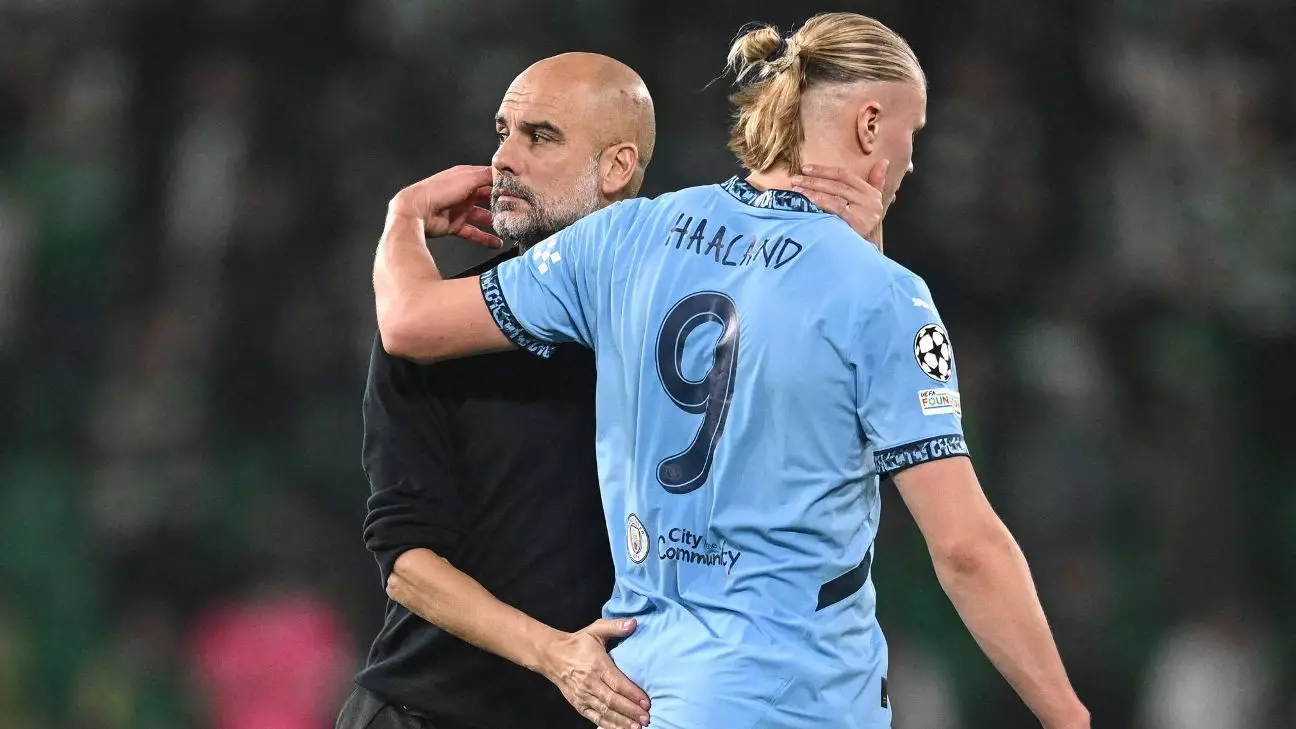Recently, Manchester City made headlines by securing the managerial services of Pep Guardiola for an additional two years. While this decision brings a layer of stability at the top of the club’s structure, it starkly highlights a pervasive uncertainty brewing within the squad. A total of 16 first-team players, including high-profile names like Erling Haaland, Kevin De Bruyne, and Jack Grealish, are set to see their contracts expire between now and the conclusion of Guardiola’s newly extended deal in 2027. This situation presents a dual challenge for the club: nurturing on-field performance while also grappling with impending contract negotiations that could significantly alter the team’s fabric.
Manchester City’s current conundrum is further complicated by various factors, most notably the club’s ongoing legal disputes with the Premier League involving 115 charges of financial misconduct. As the legal proceedings unfold, the shadow of uncertainty looms heavily over the players. The outcomes of these charges could range from financial penalties to severe repercussions such as point deductions or even expulsion from the league, although the latter option remains less likely.
The timing of these legal issues, coinciding with the club’s struggling performances on the pitch, has created an environment where players are cautious about tying themselves to new contracts. Since the announcement of the charges in February 2023, the only players to secure contract extensions are backup goalkeepers, a clear signal that first-choice players are wary about committing their futures to a club embroiled in such turbulence.
Looking ahead, the urgency becomes even more pronounced with pivotal contracts nearing expiration. Stars like Ilkay Gündoğan and Kevin De Bruyne can explore free agency by next summer, and both have expressed hesitation about their future at the club. De Bruyne’s recent statement—”If no talks come, it will be my last year”—reflects the growing anxiety regarding long-term contracts amidst existing challenges.
Another group of crucial players, including Bernardo Silva and Rúben Dias, will see their contracts end by June 2026, demanding proactive engagement from the club to either secure their services or prepare for potential departures. The experience of teams like Liverpool this season indicates that failing to address contract situations adequately leads to significant risks, including losing vital personnel without any compensation.
Furthermore, with the impending shift in key roles at the club—including the replacement of long-time director of football Txiki Begiristain by Sporting CP’s Hugo Viana next summer—the need for clarity in player contracts becomes even more pressing. An influx of uncertainty regarding personnel could affect both recruitment strategies and the retention of existing players during a tumultuous transition phase.
An interesting parallel arises when considering Guardiola’s recent contract extension. While his commitment provides immediate reassurance to some inline, it does not eliminate the underlying issues concerning player contracts. Managers may change with relative frequency, but players who commit to long-term deals solidify their fate for several years. In contrast to a manager’s relatively short-term vision, a player’s contract represents a binding commitment, often complicating decisions amid volatile circumstances.
The interplay between managerial stability and player uncertainty is revealing a critical juncture for Manchester City. While Guardiola’s longevity at the helm may promise a coherent vision moving forward, the latent contract issues involving star players could jeopardize the club’s ambitions. With each passing week, a resolution to the ongoing legal disputes will be vital. However, the timing of any outcomes may not align with players’ decisions regarding their futures.
Failure to navigate this web of contract negotiations successfully may lead to significant changes within the squad by 2027, reshaping the team that has become synonymous with success. The task ahead will not only require keen negotiation skills but also an understanding of player psychology in an environment laden with uncertainty. As the club approaches this pivotal moment, its ability to maintain its competitive edge will hinge on addressing these layered challenges effectively. Ultimately, the question remains: how will Manchester City balance its ambitions with the pressing need for clarity and commitment within its ranks? Only time will reveal the true ramifications of this complex contract landscape.

